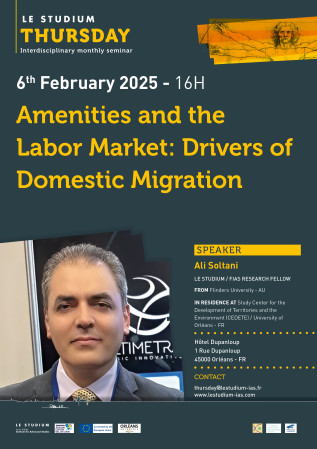Ali Soltani

From
In residence at
Host scientist
Geneviève Pierre
BIOGRAPHY
Ali Soltani is a senior researcher in computational urban planning and policy who specialises in the intersection of land use and transportation. He is a member of UniSA Business and has previously worked as an urban planning professor at Shiraz University in Iran, where he was awarded the national research excellence medal in 2014, and as a research fellow in Turkey (Izmir), Australia (Griffith), and as a visiting fellow in Japan (Tsukuba) and Italy (Naples Federico II).
Ali holds degrees in surveying (spatial science), urban planning, and data science. His research interests include urban analytics, computational planning and policy analysis, property data, Big Data applications in housing, active transport, shared mobility, and the impacts of planning and transportation infrastructure/policies on the housing sector. He has taken part in a number of grant-funded research initiatives both in Australia and overseas. He is an editor (associate) for Springer's Q1 Journal of Housing and Built Environment, and Journal of Environment, Development and Sustainability, and a member of editorial boards for some other journals. He was the receptionist of Australian Endeavour Award in 2015.
PROJECT
Investigating the Spatio-temporal Heterogeneous Changes in Internal Migration Patterns, the Case Study of Melbourne
By relating to recorded internal migration patterns, this collaborative project under the French Institutes for Advanced Study (FIAS) support, between Universities of Orléans (UO), and Flinders (Australia), aims to recognizing and to understanding the changing spatial pattern of domestic migrations in France and in Australia, two comparable highly developed countries, and investigates how the interactions of population and activity centres can become an integral measure of successful policy-making.
COVID-19 decreased net interstate migration, although it began to rebound after lifting the restrictions showing that the effect of COVID‐ 19 on internal migration is likely to be short‐lived. This study is one of the few to examine how amenities and the labour market interact and how that affects internal migration using hybrid behavioural and spatial techniques. The Greater Melbourne Area (GMA) in Australia was selected as the case study due to the high percentage of internal migrants (over 40 percent), the availability of open-source census data, and the study's complete feasibility for a six-month fellowship without any ethical concerns. This research would contribute to the current body of knowledge by considering a wide range of internal migration push and pull forces as well as their local implications. This study will be using an advanced set of covariance-based structural equation models (CB-SEM) based on novel exogenous latent, followed by developing an innovative technique of hybrid PLS-GWR (Geographically Weighted Regression) and PLS-GTWR (Geographically and Temporally Weighted Regression) methodologies to capture the locality implications of the latent. This research is to use the “COVID-19” experiment to identify the drivers of decision-making by internal migrants, including the scope to working from home but also the impact of amenities and the economies of agglomeration.
The findings of this study will discuss the importance of utility maximization in migration decision- making, and will investigate the role of high skilled workers living in an area in attracting other migrants. On the basis of this study, local governments might clarify their position in terms of amenity supply and offering an appealing environment for employees, particularly skilled workers.
 |
This project has received funding from the European Union’s Horizon 2020 research and innovation programme under the Marie Skłodowska-Curie grant agreement No 945408 |


